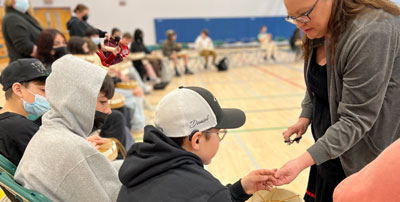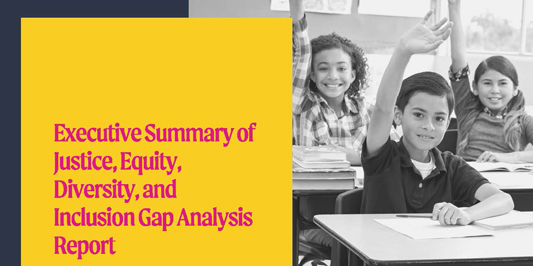Introduction
At New Westminster Schools, providing Inclusive Education options that support a wide range of student and family needs is something we’re deeply committed to.
 We know it can feel challenging as you work to support your kids with diverse needs – whether you’ve been doing it for years or whether you’ve just received a diagnosis. From our leadership teams to our front line Educational Assistants, and everyone in between, we want to be partners in better supporting your child as they grow through our schools. A big part of doing that work happens through supporting parents and guardians as they navigate the educational system too.
We know it can feel challenging as you work to support your kids with diverse needs – whether you’ve been doing it for years or whether you’ve just received a diagnosis. From our leadership teams to our front line Educational Assistants, and everyone in between, we want to be partners in better supporting your child as they grow through our schools. A big part of doing that work happens through supporting parents and guardians as they navigate the educational system too.
The below handbook has been developed to help support parents and caregivers in making the process easier. This revised guide was developed as one part of the recommendations that came out of our year-long Inclusive Education Review.
We know you’ll still have many questions, and like any child’s education, this will involve a journey of learning and growing together, as we make sure each child gets opportunities to access the supports that are right for them. But we hope this helps start or support that process for you.
This resource will be updated annually (or as needed) by district staff. Please click here to download and access the most recent printable copy: Parent and Guardian Guide to Inclusive Education – June 2021
Or you can use our Online Version of the Parent Guide to Inclusive Education that we’ve formatted for easy access:
*Using the Google Translate function that’s built into the website will allow you to read all of this in over 100 languages.
- Section A: Our foundation
- Section B: Ministry of Education special needs categories
- What supplemental services are funds used for?
- How are supplemental services assigned to schools?
- Section C: District and school staff
- What are the roles of various staff members?
- Section D: Individual Education Plans (IEPs)
- What is an IEP?
- How are they created?
- Section E: Adapted & modified programming
- How can adaptions be made to provide students alternate ways to show mastery of concepts and learning?
- Section F: Assessment
- Who will write the report cards?
- What is the process for getting my child formally assessed by the school?
- Will the school accept formal assessments done privately?
- Section G: Problem solving
- What can parents and guardians do if they have concerns about a child’s education program
- Section H: Communication FAQs
- Section I: Transitions
- How we support kids moving into new grades and schools
- Section J: Provincial outreach programs
- Appendix A: Community resources for parents
- Appendix B: Glossary of terms
| Looking for quick answers on key issues? Here’s our list of one-pager guides to support parents around the questions we hear most: |
The original Parent/Guardian Resource Guide to Special Education (2014) was developed in partnership with the District Parents’ Advisory Council. Special acknowledgement is extended to:
- Beth Ott, Chair, District Parents’ Advisory Council;
- Maya Russell, Vice-Chair, District Parents’ Advisory Council; and,
- Heather Burke, Secretary, District Parents’ Advisory
This revised resource comes from a specific recommendation in our District Review of Inclusive Education. We would like to acknowledge the following people for their work and dedication to this revised resource.
- Kathleen Carlsen, District Parents’ Advisory Council Chair
- Laurie Scouten- Parent
- Anne Whitmore – Parent
- Janice OBriain – Parent
- Tonya Roy – Parent
- Susan Crosby – District Behaviour Support Teacher



